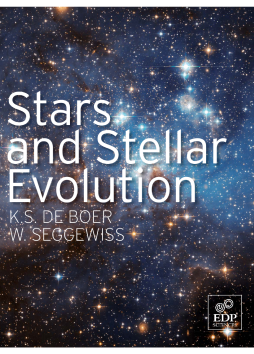
Additional Information
Book Details
Abstract
The diverse forms that stars assume in the course of their lives can all be derived from the initial conditions : the mass and the original chemical composition. In this textbook Stars and Stellar Evolution the basic concepts of stellar structure and the main roads of stellar evolution are described. First, the observable parameters are presented, which are based on the radiation emerging from a stellar atmosphere. Then the basic physics is described, such as the physics of gases, radiation transport, and nuclear processes, followed by essential aspects of modelling the structure of stars. After a chapter on star formation, the various steps in the evolution of stars are presented.
This leads us to brown dwarfs, to the way a star changes into the red-giant state and numerous other stages of evolution and ultimately to the stellar ashes such as white dwarfs, supernovae and neutron stars. Stellar winds, stellar rotation and convection all influence the way a star evolves. The evolution of binary stars is included by using several canonical examples in which interactive processes lead to X-ray binaries and supernovae of type Ia. Finally, the consequences of the study of stellar evolution are tied to observed mass and luminosity functions and to the overall evolution of matter in the universe.
The authors aim at reaching an understanding of stars and their evolution by both graduate students and astronomers who are not themselves investigating stars. To that end, numerous graphs and sketches, among which the Hertzsprung-Russell diagram is the dominant one, help trace the ways of stellar evolution. Ample references to specialised review articles as well as to relevant research papers are included.
